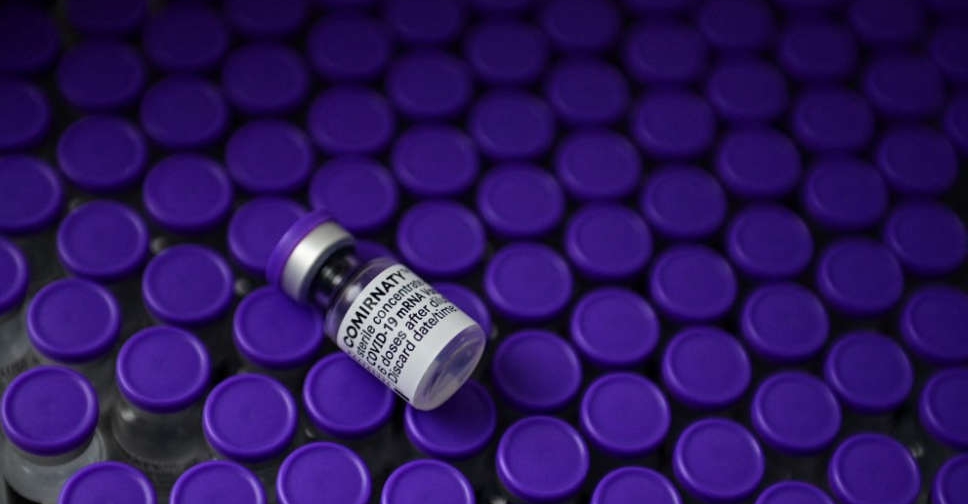
The EU's drug regulator approved the use of Pfizer-BioNTech's COVID-19 vaccine for children between the ages of five and 11 on Thursday.
It paves the way for them to be given a first shot as Europe struggles with a surge in cases.
The European Medicines Agency (EMA) recommended that Pfizer-BioNTech's vaccine, approved for European Union use in teenagers between 12 and 17 years old since May, be given as an injection in the upper arm in two 10 microgramme doses, three weeks apart.
Adult doses contain 30 microgrammes.
The approval comes as Europe is the epicentre of the pandemic again, accounting for about half of cases and deaths.
Inoculating children and young people, who can unwittingly transmit COVID-19 to others, is considered a critical step towards taming the pandemic.
In Germany and the Netherlands, kids now account for the majority of cases.
Pfizer and BioNTech have said their vaccine, which is called Comirnaty, showed 90.7 per cent efficacy against the coronavirus in a clinical trial of children aged 5 to 11.
"The benefits of Comirnaty in children aged 5 to 11 outweigh the risks, particularly in those with conditions that increase the risk of severe COVID-19," the EMA said.
While final approval is up to the European Commission, it typically follows EMA recommendations and an EU source told Reuters that a decision would likely come on Friday.
EU countries, including Austria, Poland, Hungary and the Czech Republic are now preparing nationwide inoculation programmes for younger children, although the first of the low-dose paediatric shots will not be delivered until December 20.




 Trump adds seven countries to full travel ban list
Trump adds seven countries to full travel ban list
 Indian parliament votes to allow private firms in nuclear power sector
Indian parliament votes to allow private firms in nuclear power sector
 Doctors in England start five-day walkout during flu surge
Doctors in England start five-day walkout during flu surge
 Israeli settler kills 16-year-old Palestinian in West Bank, mayor says
Israeli settler kills 16-year-old Palestinian in West Bank, mayor says
 Paris' Louvre reopens partially but staff vote to extend strike
Paris' Louvre reopens partially but staff vote to extend strike







